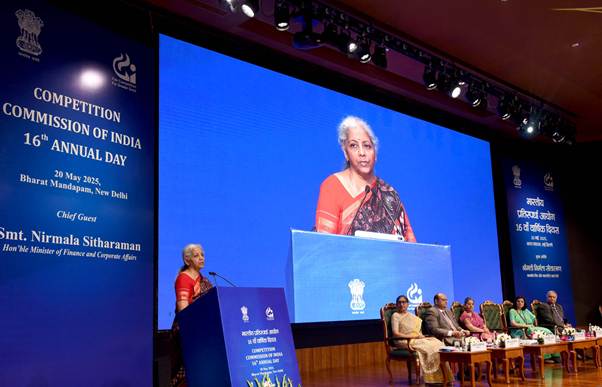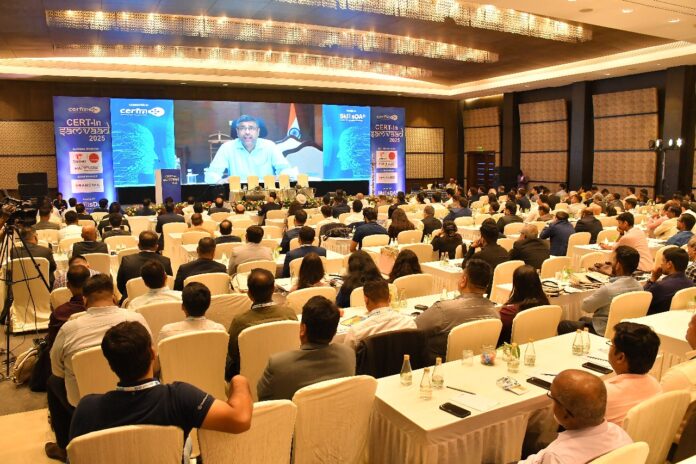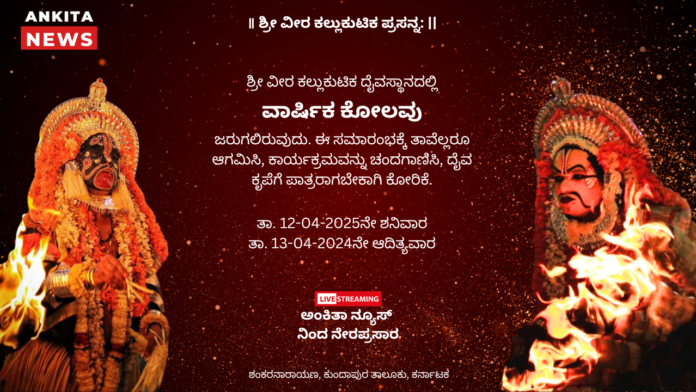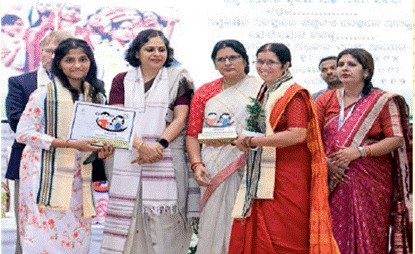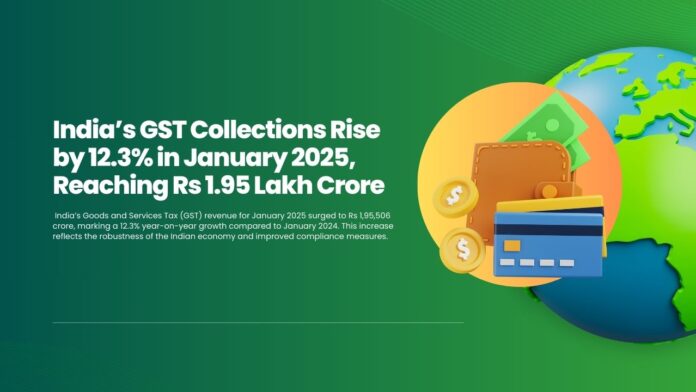The three-day National Annual Conference ‘CERT-In SAMVAAD 2025’ was inaugurated on 19th May 2025 at Radisson Blu Resort Temple Bay, Mahabalipuram, Tamil Nadu, with the goal of enhancing India’s cybersecurity audit ecosystem. The event is organized by the Indian Computer Emergency Response Team (CERT-In) in collaboration with SkillsDA and brings together empanelled information security auditing organizations, government regulators, and key stakeholders from across the country.
The conference was inaugurated by Shri S. Krishnan, Secretary, MeitY, alongside other distinguished dignitaries including Shri Brajendra Navnit, Principal Secretary, Information Technology and Digital Services Department, Government of Tamil Nadu; Dr. Kamakoti Veezhinathan, Director, IIT-Madras; Dr. N. Subramanian, Executive Director, Society for Electronic Transactions and Security (SETS); and Dr. Sanjay Bahl, Director General, CERT-In.
In his keynote address, Shri S. Krishnan stressed the need for innovation in auditing practices, enhanced risk assessment, capacity building, and the auditing of emerging technologies. He emphasized that collaboration across stakeholders is key to countering evolving cyber threats and strengthening the national audit framework. He acknowledged CERT-In’s leadership in offering a platform for organizations to upgrade practices and enhance knowledge-sharing for a cyber-resilient India.
Dr. Sanjay Bahl, DG CERT-In, in his welcome address, described the event as the first-of-its-kind global conference specifically designed for the auditing community. He highlighted CERT-In’s establishment of a structured audit framework including the empanelment of Information Security Auditing Organizations tasked with conducting audits, vulnerability assessments, and penetration testing across the country. He noted that discussions during the conference—on frameworks, methodologies, and case studies—will support auditors in upgrading their capabilities and improving audit quality.
In his presentation, Dr. Kamakoti of IIT-Madras stressed the importance of cyber resilience, especially in light of the increasing cyber threat landscape. He called for strong architectural frameworks and cross-sector collaboration to ensure continuity of essential services even under adverse conditions.
Dr. N. Subramanian of SETS addressed cybersecurity risks emerging from technologies like 5G/6G, quantum computing, and artificial intelligence, and expressed optimism about the conference’s role in building effective cybersecurity strategies.
Shri Brajendra Navnit, Principal Secretary, Government of Tamil Nadu, highlighted the state’s cybersecurity initiatives and the need for comprehensive, forward-looking audits that address current and future risks to digital infrastructure and data security. He commended CERT-In for hosting this critical national forum.
The event featured a panel discussion on ‘Cybersecurity Audits & Regulatory Expectations: Bridging the Gap’, moderated by Shri S.S. Sarma, Director Operations, CERT-In, and included panelists from various regulatory bodies. The discussion offered actionable insights to auditing organizations on aligning with regulatory frameworks.
Over the three days, the conference will feature more than 70 presentations across management and technical tracks. The management track covers topics such as human factors in auditing, executive-level risk management, governance frameworks, and effective stakeholder communication. The technical track delves into automated auditing tools, securing IoT, AI/ML, blockchain, and quantum computing, SBOM implementation, and methodologies for complex and continuous audit environments, including cloud, API, and operational technologies.
Participants will gain in-depth exposure to the latest cybersecurity audit trends, tools, and techniques, with takeaways focused on automation, adaptive methodologies, and audit quality enhancement. With over 300 representatives from CERT-In Empanelled Auditing Organizations in attendance, the conference promises to set new benchmarks in cybersecurity auditing and resilience.

